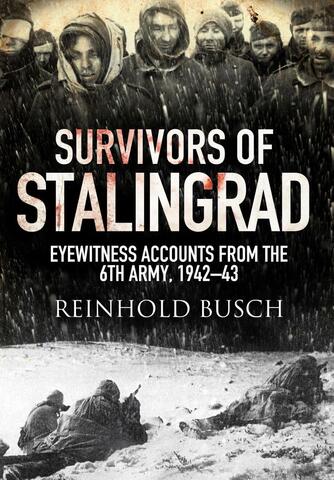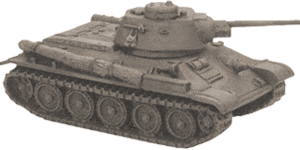Survivors of Stalingrad

Survivors of Stalingrad by Reinhold Busch is really a must-read, and not just for those interested in the epic 1942-1943 Battle for Stalingrad. This book provides an engrossing look at the horrors of combat in an impossible situation.
The author's focus is on breaking down what it was like to be trapped with the German Sixth Army following the Red Army's brilliant encirclement of its previous tormentor. The author has studied hundreds of previously unpublished reports, interviews, diaries and newspaper accounts. He then assembled the most interesting of those stories here to reveal the experiences of German soldiers of all ranks as they clawed for survival in the Stalingrad pocket.
Orginally published in Austria over a decade ago, this book begins with a brief overview of the Nazi-Soviet war leading up to the formation of the Stalingrad pocket. Thereafter the remainder of the book is a collection of essays written by those German soldiers who survived the battle. This includes those fortunate enough to be flown out of the pocket, swept aside during the pocket's formation, the pilots and aircrew who attempted to keep the pocket supplied, as well as those few who survived capture and imprisonment in the Soviet gulags.
Keep in mind, the book is really about what happened inside the Stalingrad pocket after its formation. Though there are some essays that include discussion of events leading up the Red Army's Operation Uranus, the vast majority of the content is focused on what happened from November 19, 1942 up to the Sixth Army's final surrender during January-February 1943. Though it would have been nice to read more about what life in the gulag was like followed by return to civilization after over a decade of imprisonment; there is more than enough to chew on regarding what happened inside the pocket and as offered from the wide perspective of so many different ranks and military specialties.
The essays offer an unvarnished look at not only the severe fighting that characterized these months, but also the simple attempt to survive the rampant disease, malnourishment, and harsh winter on the steppe and in the ruins of Stalingrad. These three dozen plus essays also flesh out even further the malpractice of OKH in failing to logistically back Sixth Army. The essays also indirectly highlight a number of other questionable leadership decisions. Not least of which those being of Sixth Army's commander. Paulus failed on so many levels, with perhaps his final failure not even being his lack of initiative in addressing his army's situation in the hours after the pocket's formation - but even before that in showcasing what might have transpired had he even remotely sought to secure his lines of communication and Sixth Army's rear areas as October turned to November and the threat grew on his flanks.



Post new comment